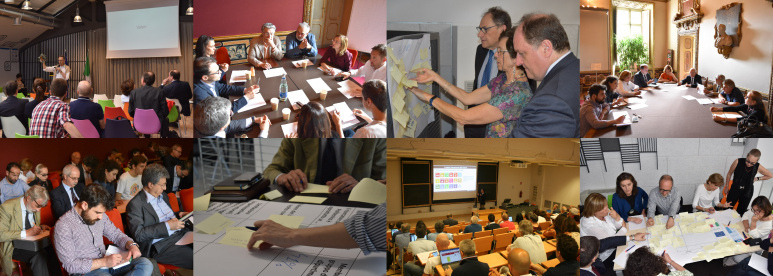Process

| Preliminary Work |
Workshops with external stakeholders |
Workshops of the Rector’s team |
Joint Workshops |
Final phase and draft sharing |
|
|
||||
|
|
|
|
|
METHODOLOGICAL CHOICES
Instead of the traditional approach seeing strategy as “planning”(a top-down and deductive process, focused on “what to do”), a new approach has been adopted, where strategy is characterized as an “emergent” phenomenon, that is:
|
|
"Contemporary" approach |
| Bottom up |
|
| Inductive |
|
| Focused on “what to be” |
|
| Fitting uncertain and volatile contexts and non-hierarchical organizations |

THE EFFECTS
Methodological effects
- Widely participated process
- Role of mediation and integration
Effects on contents
- Significant focus on impact
- Balanced evaluation of the three university missions and their different expressions, aware of their role and complementarity
- Orientation opposite to a top-down approach
- Focus on "what we are" ("open community" and "enabling platform")
Future effects
- Development of an Action Plan (already foreshadowed by a list of objectives)
- Development of specific strategic plans, which will implement the Institutional Strategic Plan into the various university units


